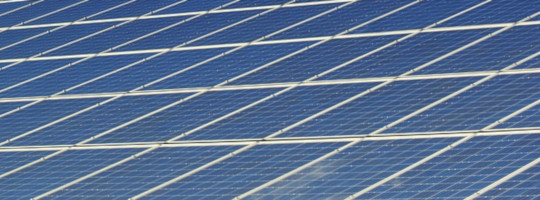Thomas Edison? James D. Newton? Apocryphal?

Question for Quote Investigator: A fascinatingly prescient remark about energy has been attributed to the famous inventor and entrepreneur Thomas Edison:
I’d put my money on the sun and solar energy. What a source of power! I hope we don’t have to wait until oil and coal run out before we tackle that.
Edison died in 1931, and these words sound almost too futuristic to me. Is this an accurate quotation?
Reply from Quote Investigator: There is solid evidence that Thomas Edison believed that sunshine, wind, and tides should be employed to generate energy for humankind. The amount of energy available from these sources was potentially enormous. Edison expressed this position during a 1910 interview, and QI has an article about this topic located here. This article is focused on the narrow topic of the provenance of the quotation specified by the questioner.
In 1987 the book “Uncommon Friends: Life with Thomas Edison, Henry Ford, Harvey Firestone, Alexis Carrel, & Charles Lindbergh” was published. The author James D. Newton was a friend of each one of these prominent figures from history.
Many of the discussions and incidents described in the book occurred decades before the publication date. To support their veracity Newton stated that he kept contemporaneous notes:1
I have not had to rely on my memory alone to record the events, anecdotes, and conversations in which I took part with my friends over a period of nearly fifty years. Fortunately, during most of that time I kept a diary in which I noted times and places, key phrases, and vivid impressions. I also relied on publications by and about my friends, which jogged my memory.
Newton described a conversation between Thomas Edison, automobile manufacturer Henry Ford, and tire manufacturer Harvey Firestone. Edison began with a provocative remark about the possible depletion of resources in the future. Boldface has been added to excerpts:2
“We are like tenant farmers, chopping down the fence around our house for fuel, when we should be using nature’s inexhaustible sources of energy—sun, wind, and tide.”
Firestone responded that oil and coal and wood couldn’t last forever. They’d been tackling rubber. He wondered how much hard research was going into harnessing the wind, for example. Windmills hadn’t changed much in a thousand years.”
Ford said there were enormously powerful tides—for example, the Bay of Fundy. Scientists had only been playing with the question so far.
Edison said, “I’d put my money on the sun and solar energy. What a source of power! I hope we don’t have to wait till oil and coal run out before we tackle that. I wish I had more years left!”
Here are additional selected citations in chronological order.
In 1987 a book reviewer working for the UPI News Service evaluated Newton’s volume and shared with readers the forward-thinking words attributed to Edison:3
He details a fascinating March 1931 conversation in which Firestone discusses harnessing the wind for power, Ford the possibility of getting energy from strong tidal waters and Edison the future of solar power.
“I’d put my money on the sun and solar energy,” said Edison. “What a source of power! I wish I had more years left!”
In 2007 “The New York Times” printed a piece by filmmaker Heather Rogers about Thomas Edison’s pioneering work on wind power, batteries, and energy self-sufficiency. The article ended with an instance of the quotation.4
In the end, Edison’s proudly free-standing Suburban Residence was hooked up to the grid, and neither his in-home wind-generated electricity plant nor his battery-powered vehicles ever reached the mass market. In 1931, not long before he died, the inventor told his friends Henry Ford and Harvey Firestone: “I’d put my money on the sun and solar energy. What a source of power! I hope we don’t have to wait until oil and coal run out before we tackle that.”
In conclusion, QI is uncertain how one might evaluate the reliability of the dialog presented by Newton. The words were reportedly spoken more than fifty years before the publication of Newton’s book. The authenticity of the quotations would be bolstered if the words were recorded in a diary and if images of the diary pages were placed in an archive accessible to researchers. QI does not know what was recorded.
Image Notes: Picture of solar panels and the sky from andreas160578 at Pixabay. The image has been cropped and resized.
Acknowledgement: Great thanks to Brian Wakefield, Jediphone, and Ron Kube whose inquiries led QI to formulate this question and perform this exploration.
Update History: On December 5, 2019 the beginning of the answer section was updated to include a link to a separate QI entry about a 1910 interview with Edison. On January 17, 2025 the format of the bibliographical notes was updated.
- 1987, Uncommon Friends: Life with Thomas Edison, Henry Ford, Harvey Firestone, Alexis Carrel, & Charles Lindbergh by James D. Newton (James Draper Newton), Quote Page ix, Harcourt Brace Jovanovich, San Diego, California. (Verified on paper) ↩︎
- 1987, Uncommon Friends: Life with Thomas Edison, Henry Ford, Harvey Firestone, Alexis Carrel, & Charles Lindbergh by James D. Newton (James Draper Newton), Quote Page 31, Harcourt Brace Jovanovich, San Diego, California. (Verified on paper) ↩︎
- 1987 August 16, Altoona Mirror Sunday, Carrie Fisher’s book has good stuff, (Book Review by Roberto Dias of “Uncommon Friends” by James D. Newton, Harcourt Brace, UPI News Service), Quote Page F5, Column 6, Altoona, Pennsylvania. (NewspaperArchive) ↩︎
- 2007 June 3, New York Times, Reconsideration: Current Thinking by Heather Rogers, Quote Page 18, Column 2, New York. (ProQuest; also Online New York Times Archive) link ↩︎